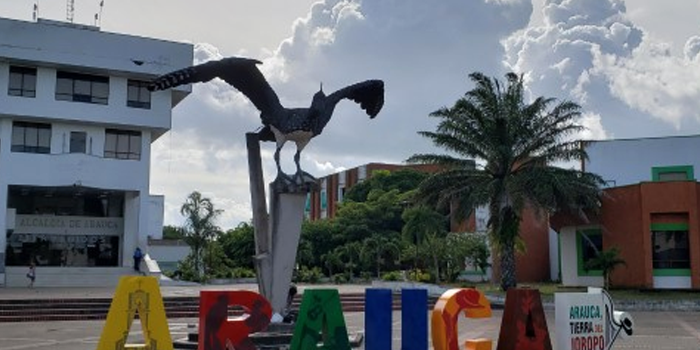
The Unit implements actions to reduce extreme poverty for victims, in Arauca
The entity disclosed the programs and processes carried out within the framework of the departmental equity table, led by the Department of Social Prosperity.

Immediate humanitarian aid for forced displacement and other victimizing acts, as well as humanitarian attention added to collective reparation plans, are some of the actions implemented by the Victims Unit, in order to improve the living conditions of survivors of armed conflict in the department of Arauca.
The territorial director of the entity, Alicia María Rojas Pérez, pointed out that the Victims Unit works in an articulated way with other State institutions, in the design and implementation of public policies to overcome the situation of vulnerability of victims of violence and population in need.
“These spaces are key to the analysis of the actions implemented from the institutional framework, in order to dignify and guarantee the living conditions of thousands of families that today face various adversities in the midst of the pandemic. We are working together and on different fronts, in order to prevail the right to education of our survivors of armed conflict for their access and training in higher education, we are making approaches that allow us to make strategic alliances with universities and institutes", said Rojas Pérez.
So far in 2020, the Victims Unit delivered resources in the framework of care for humanitarian aid for displacement and other victimizing acts, for more than $ 111 million to nearly one hundred homes in Arauca. Likewise, it has delivered Humanitarian Care to 4,860 households with a value of more than $ 2,890 million.
Likewise, the entity has been delivering the indemnities contemplated in the individual reparation process, with permanent accompaniment on the subject of adequate investment of resources to 816 victims who have been repaired with resources that reach $ 7,392 million.
During the meeting, health, housing and other issues related to investment programs were analyzed. Representatives of the public sector participated in the meeting led by Social Prosperity and private as the Arauca Chamber of Commerce; Sign; Ministry of Labor; Arauca Governorate; Higher School of Public Administration (ESAP); Colombian Institute of Family Welfare (ICBF); The Territorial Renewal Agency (ART) and the Arauca Compensation Fund.
(End/CEG/AMA/LMY)






